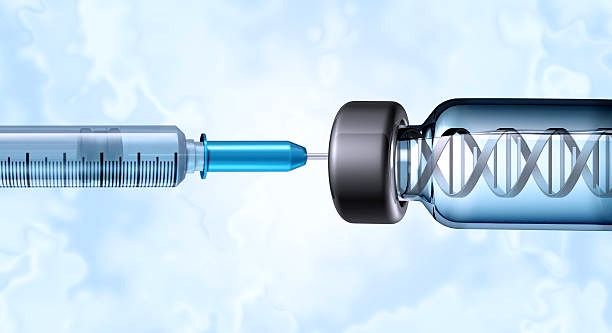Gene-based vaccines: how they work and their future
1. What is a gene-based vaccine?
Gene-based vaccines are a type of vaccine that uses genetic material (mRNA or DNA) to produce immunity to a disease. Traditional vaccines use weakened or inactivated pathogens or parts of them, but gene-based vaccines instruct the body's cells to produce the proteins (antigens) needed to fight the disease on their own. This technology is a breakthrough in medical science.
2. Types of gene-based vaccines
Gene-based vaccines are mainly of two types:
- mRNA vaccines : These contain messenger RNA (mRNA), which instructs cells to make a specific protein. Examples: Pfizer-BioNTech and Moderna's COVID-19 vaccines.
- DNA vaccine : It contains a piece of DNA, which enters the cell nucleus and instructs it to make proteins. Example: India's Zycov-D vaccine.
3. How do gene-based vaccines work?
The mechanism of action of gene-based vaccines is as follows:
3.1. Genetic instructions entry
The vaccine is administered through injection. In the case of mRNA vaccines, the mRNA enters the cell via lipid nanoparticles. In the case of DNA vaccines, technologies such as electroporation or gene delivery are used.
3.2. Protein production
mRNA reaches the cell's ribosome and gives instructions to make proteins. For example, in the case of Covid-19, it makes the spike protein. DNA vaccines enter the nucleus and make mRNA, which is then translated into proteins.
3.3. Activation of the immune system
The protein (antigen) produced is recognized as part of the pathogen by the body's immune system. It produces T-cells, B-cells, and antibodies, which protect the body from future attacks by the pathogen.
3.4. Security and temporary nature
Gene-based vaccines do not mix with the body's DNA or change the genome. The mRNA works in the cell for a while and then is destroyed. DNA vaccines are similarly temporary.
4. Advantages of gene-based vaccines
Gene-based vaccines have several advantages:
- Rapid production : mRNA vaccines can be designed and produced quickly. The COVID-19 vaccine was developed in just a few months.
- Safety : It does not contain any live pathogens, so there is no risk of infection.
- Flexibility : Vaccines can be quickly updated for new viruses or mutations.
- Strong immune response : It creates a strong immune response through both T-cells and antibodies.
- Easy storage : mRNA vaccines can be stored in the refrigerator in some cases (such as Moderna), which makes distribution easier.
5. Examples of gene-based vaccines
- Pfizer-BioNTech and Moderna : mRNA vaccine for Covid-19, which produces the spike protein.
- Zycov-D : India's first DNA vaccine, used against COVID-19.
- Vaccines under investigation : Gene-based vaccine research is underway for Zika, influenza, and cancer.

Picture: istockphoto.com
6. The challenges of gene-based vaccines
There are some challenges to this technology:
- Cold storage required : Some mRNA vaccines, such as Pfizer's, require extremely low temperatures (-70°C), which poses problems for distribution in developing cou